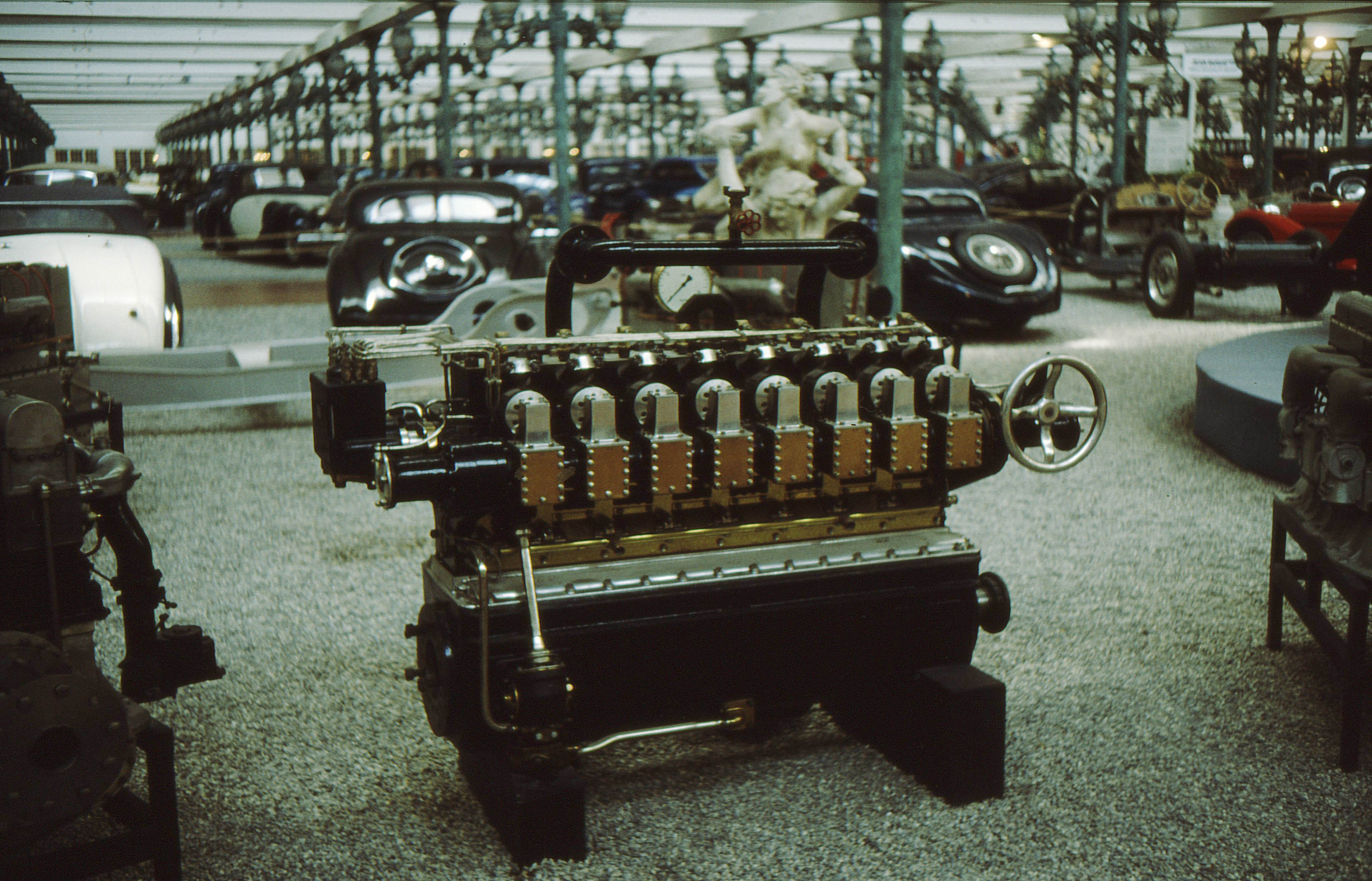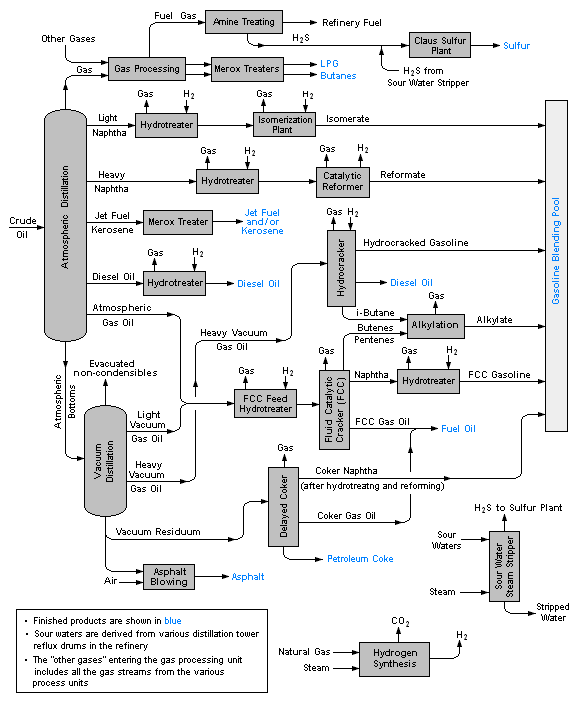|
Tüpraş Batman Oil Refinery
Tüpraş Batman Oil Refinery () is an oil refinery in Batman, southeastern Turkey. It is owned and operated by Tüpraş, the country's only oil refiner with four refineries. Batman Oil Refinery is situated in downtown Batman. It became operational in 1955. The facility has an annual crude oil refining capacity of 1.1 million tonnes. It has the advantage of proximity to the domestic oil fields. It has a simple configuration due to the lack of refining units. Intermediate goods are sent to the refineries in Izmir and kırıkkale by road transportation for further processing. In 2016, 1.0 million tonnes of asphalt base were produced, being a record. The storage capacity of the refinery is 253,000 tonnes. The facility has a Nelson complexity index of 1.83. 463 personnel are employed in the facility. References Oil refineries in Turkey Buildings and structures in Batman Province Industrial buildings completed in 1955 Batman Batman is a superhero who appears in American ... [...More Info...] [...Related Items...] OR: [Wikipedia] [Google] [Baidu] |
Batman, Turkey
Batman (; ) is a city and capital of Batman District in Batman Province, Turkey. It lies on a plateau, above sea level, near the confluence of the Batman River and the Tigris and had a population of 452,157 in 2021. It is populated by Kurds. The Batı Raman oil field, which is the largest oil field in Turkey, is located just outside the city. Batman has a local airport and a military airbase, which was used for transit of aircraft and helicopters in some search and rescue operations during the Gulf War. Until the 1950s, Batman was a village, with a population of about 3,000. However, oil fields were discovered around it in the 1940s that resulted in a rapid development of the area and in the inflow of workforce from other parts of Turkey. In 1957, the village was renamed Batman, after the river namesake, received a city status and became a district center. Over the next 50 years, a significant amount of Batman's one-story buildings were rebuilt as multi-story buildings. As a r ... [...More Info...] [...Related Items...] OR: [Wikipedia] [Google] [Baidu] |
Oil Refinery
An oil refinery or petroleum refinery is an industrial processes, industrial process Factory, plant where petroleum (crude oil) is transformed and refining, refined into products such as gasoline (petrol), diesel fuel, Bitumen, asphalt base, fuel oils, heating oil, kerosene, liquefied petroleum gas and petroleum naphtha. Petrochemical feedstock like ethylene and propene, propylene can also be produced directly by Cracking (chemistry), cracking crude oil without the need of using refined products of crude oil such as naphtha. The crude oil feedstock has typically been processed by an oil production plant. There is usually an oil depot at or near an oil refinery for the storage of incoming crude oil feedstock as well as bulk liquid products. In 2020, the total capacity of global refineries for crude oil was about 101.2 million barrels per day. Oil refineries are typically large, sprawling industrial complexes with extensive piping running throughout, carrying streams of fluids b ... [...More Info...] [...Related Items...] OR: [Wikipedia] [Google] [Baidu] |
Tüpraş
Türkiye Petrol Rafinerileri A.Ş. is a company in Turkey, operating four refineries with a total capacity to handle an annual 30 million tons of crude. Introduction Tüpraş operates four oil refineries, three of which process imported crude. The 11 million tonnes a year Izmit refinery at Izmit in north-west Turkey and the 11 million tonnes/yr Izmir refinery at Aliaga on Turkey's central Aegean coast process crude from global markets delivered by tanker while the 5 million tonnes/yr Kirikkale refinery at Kirrikale in central Turkey processes crude delivered to Turkey's Mediterranean oil hub at Ceyhan and transited to the refinery via a bespoke pipeline. The fourth refinery, the 1.1 million tonnes/yr batman refinery processes crude produced a myriad small oil fields in south-east Turkey delivered to the refinery both via an existing pipeline network and by road tanker. Tupras also owns a majority stake (79.98%) in the shipping company DİTAŞ and, since 2006, a 40% ownership of ... [...More Info...] [...Related Items...] OR: [Wikipedia] [Google] [Baidu] |
Oil Field
A petroleum reservoir or oil and gas reservoir is a subsurface accumulation of hydrocarbons contained in porous or fractured rock formations. Such reservoirs form when kerogen (ancient plant matter) is created in surrounding rock by the presence of high heat and pressure in the Earth's crust. Reservoirs are broadly classified as ''conventional'' and '' unconventional'' reservoirs. In conventional reservoirs, the naturally occurring hydrocarbons, such as crude oil (petroleum) or natural gas, are trapped by overlying rock formations with lower permeability, while in unconventional reservoirs the rocks have high porosity and low permeability, which keeps the hydrocarbons trapped in place, therefore not requiring a cap rock. Reservoirs are found using hydrocarbon exploration methods. Oil field An oil field is an area of accumulated liquid petroleum underground in multiple (potentially linked) reservoirs, trapped as it rises to impermeable rock formations. In industrial ... [...More Info...] [...Related Items...] OR: [Wikipedia] [Google] [Baidu] |
Intermediate Good
Intermediate goods, producer goods or semi-finished products are Good (economics), goods, such as partly finished goods, used as inputs in the production of other goods including final goods. A firm may make and then use intermediate goods, or make and then sell, or buy then use them. In the production process, intermediate goods either become part of the final product, or are changed beyond recognition in the process. This means intermediate goods are resold among industries. Intermediate goods are not counted in a country's Gross domestic product, GDP, as that would mean double counting (accounting), double counting, because the value of the intermediate good is included in the value of the final good. The value-added method can be used to calculate the amount of intermediate goods incorporated into GDP. This approach counts every phase of processing included in production of final goods. Characterization of intermediate goods as physical goods can be misleading, since, in adv ... [...More Info...] [...Related Items...] OR: [Wikipedia] [Google] [Baidu] |
Tüpraş Izmir Oil Refinery
Türkiye Petrol Rafinerileri A.Ş. is a company in Turkey, operating four refineries with a total capacity to handle an annual 30 million tons of crude. Introduction Tüpraş operates four oil refineries, three of which process imported crude. The 11 million tonnes a year Izmit refinery at Izmit in north-west Turkey and the 11 million tonnes/yr Izmir refinery at Aliaga on Turkey's central Aegean coast process crude from global markets delivered by tanker while the 5 million tonnes/yr Kirikkale refinery at Kirrikale in central Turkey processes crude delivered to Turkey's Mediterranean oil hub at Ceyhan and transited to the refinery via a bespoke pipeline. The fourth refinery, the 1.1 million tonnes/yr batman refinery processes crude produced a myriad small oil fields in south-east Turkey delivered to the refinery both via an existing pipeline network and by road tanker. Tupras also owns a majority stake (79.98%) in the shipping company DİTAŞ and, since 2006, a 40% ownership of ... [...More Info...] [...Related Items...] OR: [Wikipedia] [Google] [Baidu] |
Tüpraş Kırıkkale Oil Refinery
Tüpraş Kırıkkale Oil Refinery () is an oil refinery in Kırıkkale, central Turkey. It is owned and operated by Tüpraş, the country's only oil refiner with four refineries. The refinery is located on the west bank of Kızılırmak River in Hacılar town about south of Kırıkkale and about southeast of Ankara, in central Turkey. The refinery is built on a land of in a property stretching over . The refinery became operational in 1986. With its annual crude oil refining capacity of around 5 million tonnes, it is a middle-sized refinery in terms of Mediterranean standards. After its initial construction, the refinery was expanded by adding the units of hydrocraking, isomerization, diesel fuel desulfurisation and continuous catalyst regeneration (CCR) reforming. Crude oil is supplied from the Botaş Ceyhan Oil Terminal using the Ceyhan-Kırıkkale Oil Pipeline. The facility has a Nelson complexity index of 6.32. Its storage capacity is 1.41 million tonnes. It has t ... [...More Info...] [...Related Items...] OR: [Wikipedia] [Google] [Baidu] |
Bitumen
Bitumen ( , ) is an immensely viscosity, viscous constituent of petroleum. Depending on its exact composition, it can be a sticky, black liquid or an apparently solid mass that behaves as a liquid over very large time scales. In American English, the material is commonly referred to as asphalt or tar. Whether found in natural deposits or refined from petroleum, the substance is classed as a pitch (resin), pitch. Prior to the 20th century, the term asphaltum was in general use. The word derives from the Ancient Greek word (), which referred to natural bitumen or pitch. The largest natural deposit of bitumen in the world is the Pitch Lake of southwest Trinidad, which is estimated to contain 10 million tons. About 70% of annual bitumen production is destined for road surface, road construction, its primary use. In this application, bitumen is used to bind construction aggregate, aggregate particles like gravel and forms a substance referred to as asphalt concrete, which is collo ... [...More Info...] [...Related Items...] OR: [Wikipedia] [Google] [Baidu] |
Nelson Complexity Index
The Nelson complexity index (NCI) is a measure to compare the secondary conversion capacity of a petroleum refinery with the primary distillation capacity. The index provides an easy metric for quantifying and ranking the complexity of various refineries and units. To calculate the index, it is necessary to use complexity factors, which compare the cost of upgrading units to the cost of crude distillation unit. History It was developed by Wilbur L. Nelson in a series of articles that appeared in the '' Oil & Gas Journal'' from 1960 to 1961 (Mar. 14, p. 189; Sept. 26, p. 216; and June 19, p. 109). In 1976, he elaborated on the concept in another series of articles, again in the ''Oil & Gas Journal'' (Sept. 13, p. 81; Sept. 20, p. 202; and Sept. 27, p. 83). Formula \text = \sum_^N F_i \cdot \frac Where: *F_i is a complexity factor *C_i is a unit capacity *C_\text is a capacity of crude distillation unit *N is a number of all units The NCI assign ... [...More Info...] [...Related Items...] OR: [Wikipedia] [Google] [Baidu] |
Oil Refineries In Turkey
An oil is any nonpolar chemical substance that is composed primarily of hydrocarbons and is hydrophobic (does not mix with water) and lipophilic (mixes with other oils). Oils are usually flammable and surface active. Most oils are unsaturated lipids that are liquid at room temperature. The general definition of oil includes classes of chemical compounds that may be otherwise unrelated in structure, properties, and uses. Oils may be animal, vegetable, or petrochemical in origin, and may be volatile or non-volatile. They are used for food (e.g., olive oil), fuel (e.g., heating oil), medical purposes (e.g., mineral oil), lubrication (e.g. motor oil), and the manufacture of many types of paints, plastics, and other materials. Specially prepared oils are used in some religious ceremonies and rituals as purifying agents. Etymology First attested in English 1176, the word ''oil'' comes from Old French ''oile'', from -4; we might wonder whether there's a point at which it's appro ... [...More Info...] [...Related Items...] OR: [Wikipedia] [Google] [Baidu] |





